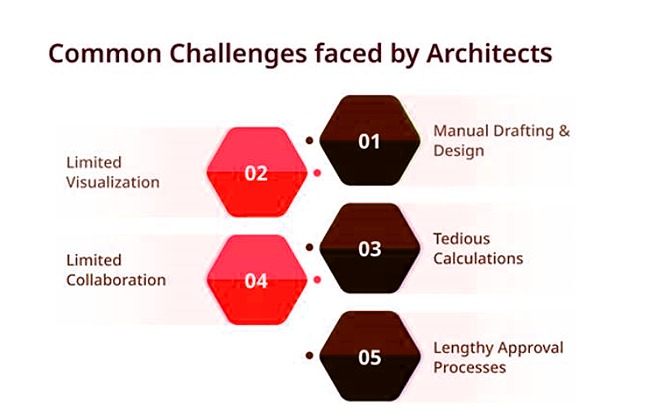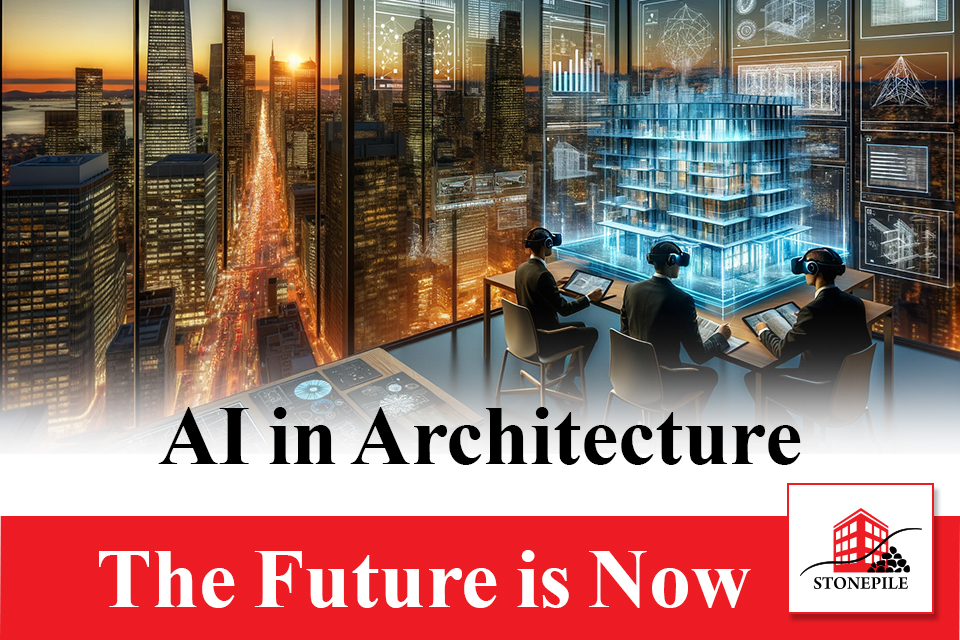The architecture industry stands at the forefront of innovation, constantly evolving as technology pushes the boundaries of what is possible. Among the transformative forces reshaping this field is artificial intelligence (AI). Gone are the days when AI was a distant sci-fi dream; today, it is a tangible reality altering our built environment and professional practices.
Introduction
Artificial intelligence has quickly become an indispensable asset in the architectural realm, streamlining processes and unlocking new creative potentials. Its integration within the industry serves not only to enhance efficiency but also to redefine design aesthetics and functionality. Understanding AI’s role in this sector requires looking back at its historical context and appreciating its swift advancement over the years.
Architecture Industry Before AI: Challenges Faced
Several significant challenges defined the pre-AI era in the architecture industry. Manual designs were common, requiring a high degree of precision and considerable time for architects to create plans. The manual drafting process was also prone to errors, potentially leading to costly modifications during construction. Furthermore, project management was largely paper-based, making it difficult to track progress, manage resources, and stay on schedule. Another key issue was the inability to predict the environmental impact of a building, which is a critical consideration in today’s environmentally conscious society. Consequently, the architecture industry often struggles with inefficiency, high costs, and sustainability issues.
Before AI, the architecture industry was labor-intensive and often prone to errors, resulting in overextended budgets, delayed timelines, and limitations in design complexity. The struggle to optimize building performance and meet the rising demand for sustainable construction practices also posed significant obstacles.

According to Where architecture and AI meet in 2024 – e-architect , the architecture industry will intersect with artificial intelligence in 2024, detailing how AI will transform the architectural landscape and offering a forward-looking perspective on both these verticals.
Understanding AI in Architecture
Artificial Intelligence (AI) is revolutionizing the field of architecture by automating processes, improving design accuracy, and enhancing sustainability. AI-driven tools and software can generate design concepts based on specific input parameters, enabling architects to explore a wider range of possibilities in a short time. Machine learning algorithms can predict the potential impact of a building on its surrounding environment, helping architects design more eco-friendly structures. Additionally, AI can streamline project management by automating routine tasks, tracking real-time progress, and identifying potential issues before they escalate. This reduces manual effort, minimizes errors, and saves time, leading to significant cost savings. Integrating AI into architecture is paving the way for a more efficient and sustainable industry.
AI refers to the simulation of human intelligence processes by computer systems. In architecture, AI extends beyond simple automation, offering cognitive insights that can significantly enhance design and decision-making processes.
Application of AI in Architecture
Design Optimization
Generative Design and AI-Driven Creativity
Generative design, an algorithm-driven design enabled by AI, allows architects to explore a wider array of design alternatives. By setting specific constraints and parameters, AI tools generate numerous design variations, opening the door for creativity and innovation.
Streamlining the Design Process
AI enables faster iterations and design refinements, leading to a streamlined workflow. The ability to quickly adapt designs to changing client needs or site-related constraints is invaluable in today’s industry.
Sustainable Design
AI’s Role in Enhancing Sustainability in Architecture
AI contributes to sustainable design by analyzing data to predict and improve building performance. This includes optimizing natural light, improving air quality, and reducing energy consumption.
Energy Efficiency and Eco-Friendly Practices
AI champions energy efficiency through predictive analytics—advising on the best materials to use and the most effective construction methods to maintain eco-friendly practices.
Project Management
AI-Powered Project Planning and Scheduling
AI’s predictive models significantly enhance project scheduling, ensuring that projects stay on track and within budget, mitigating risks before they become costly problems. Learn about the latest technologies from New construction technology releases: January 2024 | Construction Dive
Improved Efficiency in Construction Timelines
By leveraging AI for tasks like resource allocation and workflow management, construction timelines are drastically improved, enhancing overall project efficiency. Learn one such innovative technology from 3D Printing | Technology Changing the Construction Industry – STONEPILE llc
Smart Buildings
Integration of AI for Building Automation
Smart buildings, empowered by AI, adapt to user behaviors, optimize energy usage, and provide unparalleled comfort and convenience for occupants.
Enhancing User Experience and Comfort
AI-driven systems anticipate the needs of building users, adjusting lighting, temperature, and other environmental factors to improve living and working conditions. Equip your knowledge for smart infrastructure from Smart infrastructure: A tech revolution for tomorrow, ready today | Construction Dive
Benefits of Integrating AI in Architectural Education
Enhanced Learning Opportunities
Access to Cutting-Edge Technology
By integrating AI in construction education, students gain direct access to state-of-the-art technology, preparing them to enter the industry with a competitive edge.
Real-World Application of AI Concepts in Construction
Students enrolled in architecture courses gain practical experience applying AI to real-world scenarios, enhancing their construction training and professional growth. Explore the impactful use cases of AI in architecture projects and operations on AI in Architecture – Use Cases Impacting Projects & Operations (deltek.com)
Encouraging Creativity and Innovation
Exposure to AI tools fosters a culture of creativity and innovation among students, challenging them to push the boundaries of traditional architectural designs.
Developing Problem-Solving Skills through AI Applications
As AI presents novel solutions, students learn to develop problem-solving skills vital to addressing complex architectural challenges.
Industry-Relevant Skills
Preparing Students for the Evolving Architectural Landscape
Construction education equipped with AI-based modules ensures students are well-prepped for the dynamically evolving construction industry.
Meeting the Demands of the AI-Driven Construction Industry
With AI becoming an integral part of the construction industry, students trained in these technologies are poised to meet the industry’s current and future demands and establish a successful construction career.
Challenges and Considerations
Education and Training
Challenges in Integrating AI into Existing Curricula
Incorporating AI into existing educational frameworks remains a complex task. Institutions must ensure that faculty become subject matter experts to provide sufficient support and insights to the construction community.
The Importance of Continuous Learning and Adaptability
Adopting AI requires a shift in mindset, highlighting the need for continuous learning and adaptability within the modular construction paradigm and the broader field of architecture.
To stay ahead in the rapidly evolving field of architecture and construction, consider enhancing your skills with our comprehensive courses.
Conclusion
Integrating AI in architecture signals a transition into an era where design intuition meets data-driven precision. For those in the construction networking landscape, embracing AI is not merely about keeping pace with technology—it’s diving into the future of design, innovation, and sustainability. Equip yourself with more knowledge at Technology in Construction | Artificial Intelligence – STONEPILE llc. The future is built on the blueprint of AI-driven architecture, and it beckons industry professionals to join the vanguard of this revolution, armed with knowledge from a comprehensive architecture course and a dedication to industry insights that herald a new dawn for construction education.
Stay connected on our social media.


